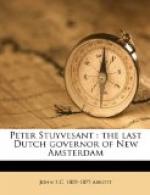“I entreated the men, on my knees, for the love of God, to remember their duty. But they only told me to go back to my berth, and would not allow me to have any communication with Hudson. After the captain was put in the boat, the carpenter was set at liberty; but he refused to remain in the ship unless they forced him. So they told him he might go in the boat and allowed him to take his chest with him. Before he got into the boat, he told me that he believed they would soon be taken on board again, as there was no one left who knew enough to bring the ship home. He thought that the boat would be kept in tow. We then took leave of each other, with tears in our eyes, and the carpenter went into the boat, taking a musket and some powder and shot, an iron pot, a small quantity of meal, and other provisions.
“Hudson’s son and six of the men were also put into the boat. The sails were then hoisted and they stood eastward, with a fair wind, dragging the shallop from the stern. In a few hours, being clear of the ice, they cut the rope by which the boat was towed, and soon after lost sight of her forever.”
The imagination recoils from following the victims thus abandoned, through the long days and nights of lingering death, from hunger and from cold. To God alone has the fearful tragedy been revealed.
The glowing accounts which Sir Henry Hudson had given of the river he had discovered, and particularly of the rich furs there to be obtained, induced the merchants of Amsterdam in the year 1616 to fit out a trading expedition to that region. A vessel was at once dispatched, freighted with a variety of goods to be exchanged for furs. The enterprise was eminently successful and gradually more minute information was obtained respecting the territory surrounding the spacious bay into which the Hudson river empties its flood.
The island of Manhattan, upon which the city of New York is now built, consisted then of a series of forest-crowned hills, interspersed with crystal streamlets and many small but beautiful lakes. These solitary sheets of water abounded with fish, and water-fowl of varied plumage. They were fringed with forests, bluffs, and moss-covered rocks. The upper part of the island was rough, being much broken by storm-washed crags and wild ravines, with many lovely dells interspersed, fertile in the extreme, blooming with flowers, and in the season, red with delicious strawberries. There were also wild grapes and nuts of various kinds, in great abundance.
The lower part of the island was much more level. There were considerable sections where the forest had entirely disappeared. The extended fields, inviting the plough, waved with luxuriant grass. It was truly a delightful region. The climate was salubrious; the atmosphere in cloudless transparency rivalled the famed skies of Italy.




